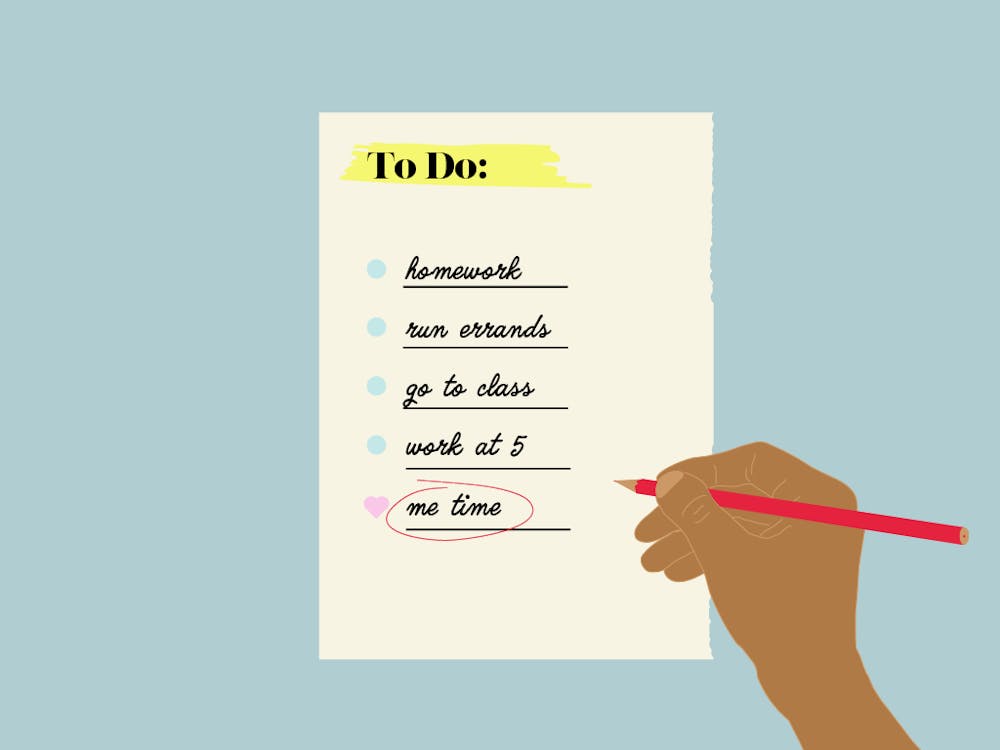Mental health trumps any school work, and scheduling out time to decompress during the week is a vital part of ensuring that your mental health remains a priority.
Because of COVID-19, there is no spring break this semester, which might cause problems with students’ mental health. Students need to take time between studying or a day during the week where they can forget the stress of school.
USC offers many programs for students struggling with time management and finding time to relax. Students can sit down with someone at the Student Success Center for help with many different things, including peer tutoring, success consultations, money management consultations or peer writing tutoring.
Success consultations in particular focus on different things like time management, how to stop procrastinating, exam preparation and study strategies. During the meeting, students will talk with a peer consultant about what they are struggling with and how they can become better students.
At the end of the meeting, the peer consultant will help them make a study plan for the next week to ensure they can work through their busy schedule and still have some time for 'me time.'
According to LiveHealth Online, taking time for yourself can improve your mental health and spark creativity — time without working can help your mind wander, so you can spark new ideas. It can also boost self-esteem, allow personal reflection and help you set new goals. It will enable you to create empathy for others and to heighten emotional intelligence.
The Student Success Center provides worksheets that can help you navigate study sessions, showing how long you should be studying and how long the break should be. Hannah Groves, a peer consultant at the SSC, said there are usually 45 minutes of studying followed by a 10-minute break.
"Sometimes it seems counterintuitive to take breaks that often, but it kind of ensures that you’re really focused," Groves said. "I think breaks are important. I think they’re necessary, and it helps you."
During a long study day, it is essential to take time for yourself to refresh before going back to studying. According to Swinburne Online, it can be very easy to burnout while studying. Taking regular breaks can help to prevent study fatigue and keep you focused. Keep the breaks short. Fifteen to 20 minutes are the best— any longer, and you will likely lose motivation to return to work.
During breaks, it’s important to move around instead of sitting at your desk. You should go for a walk to improve your circulation. You can also take a power nap, meditate or do something you enjoy to relieve stress.
It can be hard to make time for yourself, especially when you have school and work. You may feel like you always need to be getting assignments done and are too busy to take any time that’s not related to your schoolwork. It’s important to schedule time out for yourself.
"Look at your class times and almost schedule those mental health breaks as a class because I think that’s just as important as sitting down and learning," Groves said. "You’re not going to be able to fully focus and learn if you’re not taking care of yourself.”
Taking advantage of your time off is essential, especially with this semester and only getting four wellness days. These days should be spent doing things for yourself. Know when the wellness days are, write them down in your calendar and promise yourself to take a break.
Taking breaks and focusing on yourself is very important this semester. Don't let schoolwork and assignments come before your mental health.

